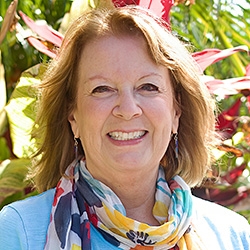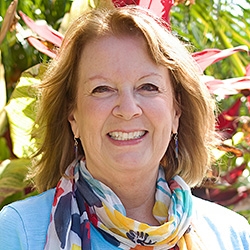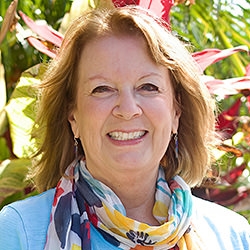

Search Results: practices
-
See how to better connect with children’s needs, especially when they resist or react to requests.
-
Learn to tell needs from strategies in parenting with two simple questions for clarity.
-
Empathy creates space for healing and clarity, transforming how care and understanding unfold.
-
Kelly Bryson explores courageous honesty and how truth shared openly deepens connection.
-
Fear in dealing with a neighbor's 'wastebasket talk.' Only leaving or interrupting stops the flow.
-
Ask the Trainer: "In trainings I say our jackals are thoughts and now I've come to wonder if all thoughts are jackals...?"
-
Learn how your inner relationship forms the basis for Focusing and NVC.
-
Bask in this telecourse recording with Kathleen Macferran and explore ways to nurture and maintain greater depths of joy by focusing on gratitude. The reward? To increase your ability to live fully present to the joy in life, even in the midst of pain.
-
How do we live each and every day from the “living energy of needs” – with the unimpeded fullness of life’s energies flowing through us, regardless of the conflicts or life circumstances we may be experiencing? Through developing deep self-compassion. How can we experience our inner world from a place of utter and total compassion? When we practice compassionate self-care, we create an inner spaciousness that allows our life’s energies to flow. In that spaciousness both healing and inner transformation occurs. Robert’s work explores the interweaving of two co-intentions—to live life from the fullness of the “beauty of needs” and to approach every experience with deep compassion.
-
Through your dialogues at home, where the stakes are often very high, you can increase your ability to meet the challenges of life everywhere with empathy, goodwill and authenticity. Please listen to this inspiring recorded telecourse with Miki Kashtan and learn how!
-
Trainer Tip: Anger can be an opportunity to hear the "Please" behind the words and create a path to resolve conflicts compassionately.
-
Are you a spiritual seeker who longs for an approach that supports compassion for self as well as profound spiritual transformation? If so, you’ll enjoy this telecourse recording with Robert Gonzales and Leo Sofer as they engage in dynamic discussions about NVC as a spiritual practice.
-
In June, 1996, I had an epiphany. In a motel room in Indiana, the night before returning home from a solo camping trip in Michigan and Canada, I discovered how much I had lost in my life because of so fiercely protecting myself. Up until that day, bringing forth my vulnerable self was to be avoided at all costs, which kept me numb much of the time, disconnected from myself and from much of life. Alone in my room, I cried, I talked out loud, and I finally exclaimed to myself that I wanted to reclaim every last bit of my vulnerability, just like I had it as a child.
-
Please join us as we take a deeper look into this mysterious word, “community.” In this Trainer Dialogue recording, we explore the living process of creating, uniting and nurturing NVC communities so that they transcend yet sustain and empower their members.
-
Trainer Tip: Mary shares how staying present to our anger and finding the underlying feelings and needs can lead to deeper connection and more satisfying outcomes.
-
How can we live life fully connected to the core values of nonviolence, no matter the circumstances, internal or external? Join Miki Kashtan as she shares the 17 core commitments that have served as a compass for herself and hundreds of others around the world as well.
-
October always makes me think about Marshall Rosenberg, the founder of Nonviolent Communication. He was born October 6, 1934. If he were still alive today (he died February 7, 2015), he would be 89 years old!
-
Miki explains the distinction between the language and the underlying consciousness of NVC, and the pitfalls of failing to do so.
-
Join CNVC Certified Trainer Eric Bowers in journeying through the world of Interpersonal Neurobiology (IPNB) as he expands on the theories and tools from his book Meet Me In Hard-to-Love Places: The Heart and Science of Relationship Success. You'll discover why IPNB and NVC complement each other so well, especially in the powerful practice of Somatic-Based Resonant Empathy.
-
Getting "feel good" empathy can become an addiction. Even to the point of seeing people who don't offer empathy as "not being NVC". Rachelle urges us to notice how this view of NVC can be seductive, and even dangerous. In this article, she explains how we can expand our compassionate awareness when we go beyond equating NVC with harmony and empathy. She asks us to become more open to noticing others' experiences even if it challenges our personal and collective belief systems -- and especially when it upsets us to consider it.

Quick Links
Subscription Preferences
Stay In Touch!
Looking for ways to keep up with NVC Academy news, get special offers, free resources, or words of inspiration? Here are five ways to stay engaged:


















